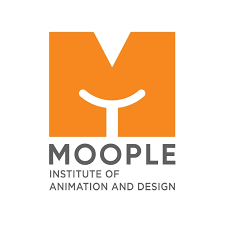Choosing the right course on game development feels like staring at the menu in a new cafe. Everything looks promising, but you don’t want to end up with something bland (or so advanced you’re immediately lost). If you’ve ever scrolled through dozens of options, read the same course descriptions on repeat, and wondered, “Am I good enough for this?”, trust us, you’re not alone.
This field is buzzing right now. More universities, bootcamps, and online platforms than ever are shouting about their game dev credentials. Some promise you’ll build the next Angry Birds, others talk up console-level programming. But how on earth do you match a course to your natural skills, without over- or under-shooting? And, crucially, how do you pick something fun and rewarding, not a never-ending trudge through code or theory?
If any of this sounds familiar, take a breath. Let’s walk through this together.
Understanding Your True Starting Point
Before you open your wallet or block off evenings for “study,” it pays to get real about your starting line. No shame, no bravado. The world of game development welcomes total newcomers, mid-level coders, digital artists, and pretty much anyone with a streak of curiosity.
What Do You Know (and What Don’t You)?
Total beginner? Maybe you’ve never written a line of code. Or your gaming experience is strictly on the sofa with a controller in hand. That’s perfectly fine. The right entry-level course will assume nothing, break things down simply, and move at a friendly pace.
Dabbled with coding or game engines? If you’ve poked around in Unity, followed a few YouTube tutorials, or built something small on Roblox, congrats, you’re ahead of the crowd. You’ll want something that skips the “what is a pixel” chat and gets straight into real projects.
Already coding or designing? Maybe you’re handy with C# and C++, or have dabbled in Blender. You might not need another beginner course, but you want practical, industry-focused content. Advanced courses, or a specific game design course, could be your next move.
Quick Reality Check
Pause for a second. How comfortable are you with:
- Installing new software and troubleshooting?
- Following step-by-step tutorials, even when they get tricky?
- Asking questions on forums or Discord when you’re stuck?
- Starting, failing, and starting again?
Honest answers here matter. Game development is exhilarating, but it isn’t plug-and-play. The best courses, at any level, are the ones you’ll stick with, even when things get messy.
What Makes a Good Game Development Course?
There’s a lot of noise out there. So, what separates the genuinely valuable courses from those that just string together some slides and call it a day?
- Clear structure: Does it explain what you’ll learn up front? Is there a progression from basics to bigger projects?
- Practical projects: Will you build a game (or at least bits of one), not just listen to someone talk?
- Community and support: Forums, mentors, Discord; somewhere you can get help when you’re stuck.
- Updated content: The game world moves quickly. A course teaching Unity 5 in 2025 is already way behind.
- Honest about prerequisites: Do they spell out who the course is for? Or do they fudge it so they get more signups?
And yes, does it look fun? If reading the syllabus feels like work, imagine 12 weeks of it.
Decoding Course Types: Certification, Bootcamp, or Self-Paced?
You’re likely staring at a wall of jargon right now: diplomas, certificates, short courses, degree modules, bootcamps. Let’s translate.
1. Short Online Courses (The Taster Menu)
- Who they suit: Curious newbies, hobbyists, “I want to try this out” folks.
- What you get: Basics, an overview of engines like Unity or Unreal, and simple 2D game projects. Often video-based, self-paced.
- Watch out for: No live help, no guarantee of completion, little depth.
2. Bootcamps and Cohort-Based Programmes
- Who they suit: Motivated learners ready to commit weeks or months, and who want real skills, fast.
- What you get: Fast-paced, project-driven learning. Mentors, deadlines, peer feedback. Ideal if you thrive in groups.
- Watch out for: It can be expensive. A fast pace might overwhelm true beginners.
3. University Programmes & Accredited Diplomas
- Who they suit: Anyone looking for a recognised credential, more in-depth theory, or to land a job in a studio.
- What you get: Structure, sometimes industry connections, and deep dives into both theory and practice.
- Watch out for: Longer time commitment. May require prior knowledge or exams.
4. Self-Paced Tutorials & YouTube
- Who they suit: Self-motivated, budget-conscious learners. Great for quick fixes or specific skills.
- What you get: Variety, flexibility, and often a direct focus on your problem area.
- Watch out for: No feedback, no progression map, content might be outdated.
When Should You Specialise?
There’s a reason studios split their teams: artists, programmers, writers, designers. Early on, it’s wise to keep things broad: dip into a little code, some art, some design theory. Over time, you’ll find what sticks. Some discover a love for scripting character movement, others get obsessed with level design, and a few can’t rest until every sound effect is perfect.
Pro tip: Try everything once. The best course is the one that makes you want to stay up late tinkering, not the one you dread logging into.
The Indie Angle: What if You Want to Make Mobile Games?
Let’s not kid ourselves. Most aspiring game devs aren’t trying to join a massive AAA studio. A huge chunk strives to make their own games – often for mobile, sometimes for Steam, and other times, just for the joy of sharing with friends.
If mobile is your dream, target courses mentioning mobile games development specifically. Why? Because mobile brings its quirks: touch controls, small screens, battery optimisation, and app store rules. Courses focused on this space will save you hours of frustration later.
Blending Learning Styles: The Hybrid Model
Who says you have to choose just one course type? In reality, the best game devs are forever learning. You can start with a basic course, then tackle a cohort-based bootcamp, before finally signing up for a university-accredited advanced class.
Mix and match. Try, fail, adjust. There’s no perfect linear journey; just forward motion.
Evaluating Course Outcomes: What Will You Build?
Don’t fall for flashy websites; look at what students actually make by the end. If all you get is a certificate, that’s not enough. If you walk away with a playable game, a portfolio, and some industry contacts, now we’re talking.
Ask yourself:
- Do I get to build and share a real game?
- Will I finish with a demo reel or portfolio?
- Is there a capstone project, game jam, or showcase at the end?
If not, keep looking.
Career Outcomes: Where Does This Course Lead?
Let’s be blunt. Not every course is about “getting a job in a studio.” Some are for hobbyists. Others can unlock freelance, indie, or even teaching careers.
Decide what “success” means for you:
- Entry-level role at a studio? Look for accredited diplomas and strong placement records.
- Indie creator? Project-driven courses, business modules, and mobile focus matter.
- Freelance work? Courses with portfolio-building, soft skills, and networking.
Watch Out: Red Flags When Picking a Course
Here are some major ones:
- Hidden requirements (must C++ for an “intro” course? Not cool.]
- Unresponsive help — no forum, no mentor — just a login screen
- Older engines or systems
- Overhyped assertions (“became a pro in two weeks!”)
- Not one student exhibit or example project.
Trust your gut. If it smells off, it probably is.
How to Choose the Best Web Development Course: A Step-by-Step Checklist
Let’s make this very simple:
- Assess your skill honestly. Don’t let ego or embarrassment sway you.
- Pick a learning mode that matches your motivation: group, solo, in-person, or remote.
- Look over the curriculum for practical tasks and applicability.
- Look for evaluations from actual students, not just for website endorsements.
- Make a reasonable schedule. Life is happening. Could you complete the weeks or months specified?
- Try before you decide to purchase. Free trial here? Sample YouTube video. Always worth a check.
Moople Academy: The Game Changer for Aspiring Game Developers
If you’ve read this far, you’re serious about levelling up your game development skills. And honestly, where you learn equally matters. At Moople Academy, we don’t just churn out certificates — we’re here to help you truly thrive in today’s game industry.
Why choose us for your journey?
- Our industry-designed curriculum: Our course module is designed by professionals who ship games, not just those who speak about them.
- Real projects, real outcomes: You will create playable games with us instead of simply watching slideshows. You will have a portfolio you can flaunt by the time you graduate.
- A supportive community: With our active peer network, Discord groups, and frequent live mentor Q&A, you are never alone. We are right here with you should you ever feel stuck.
- Career support, every step of the way: We do not merely wave goodbye and provide you a certificate. As we want you to get an opportunity, not just another certificate, our staff assists with resumes, interview preparation, and actual job postings.
- Modern, relevant material: Whether you are enthusiastic about Unity, Unreal, or mobile platforms, our curriculum is continuously changing to reflect the field.
The Takeaway: Your Game, Your Rules
If you’re still weighing your options, remember this: The best course is the one you’ll finish, the one that excites you, and the one that matches where you are right now.
- Start small, build up.
- Don’t let perfectionism or impostor syndrome freeze you.
- Try, fail, learn, repeat.
- Celebrate your wins, however tiny.
The world is full of unfinished games, but every finished project (even a wonky one) puts you leagues ahead of the dreamers who never start.
FAQs
How do I know whether a course is right for my level?
Read the prerequisites. Honest courses spell it out: beginner, intermediate, advanced. If you’re unsure, ask their support or join a free trial first.
Can I switch specialisations after starting a course?
Absolutely. Many people discover they prefer art to coding, or vice versa, after starting. Pick broad courses early, specialise as you go.
Is a game design course different from a coding course?
Yes. A game design course covers mechanics, storytelling, and player experience, while a coding course teaches the technical side: scripting, logic, and engine use. Both are valuable.
Does game creation call for mathematics?
Regarding simple 2D games, very little. Some arithmetic helps for complex 3D or physics engines; however, you may always learn as necessary.
In 2025, how significant will the development of mobile gaming be?
Quite important. Mobile platforms rule world gaming; therefore, knowing their particular needs creates great opportunities. If you want to freelance or self-publish, it’s necessary.

